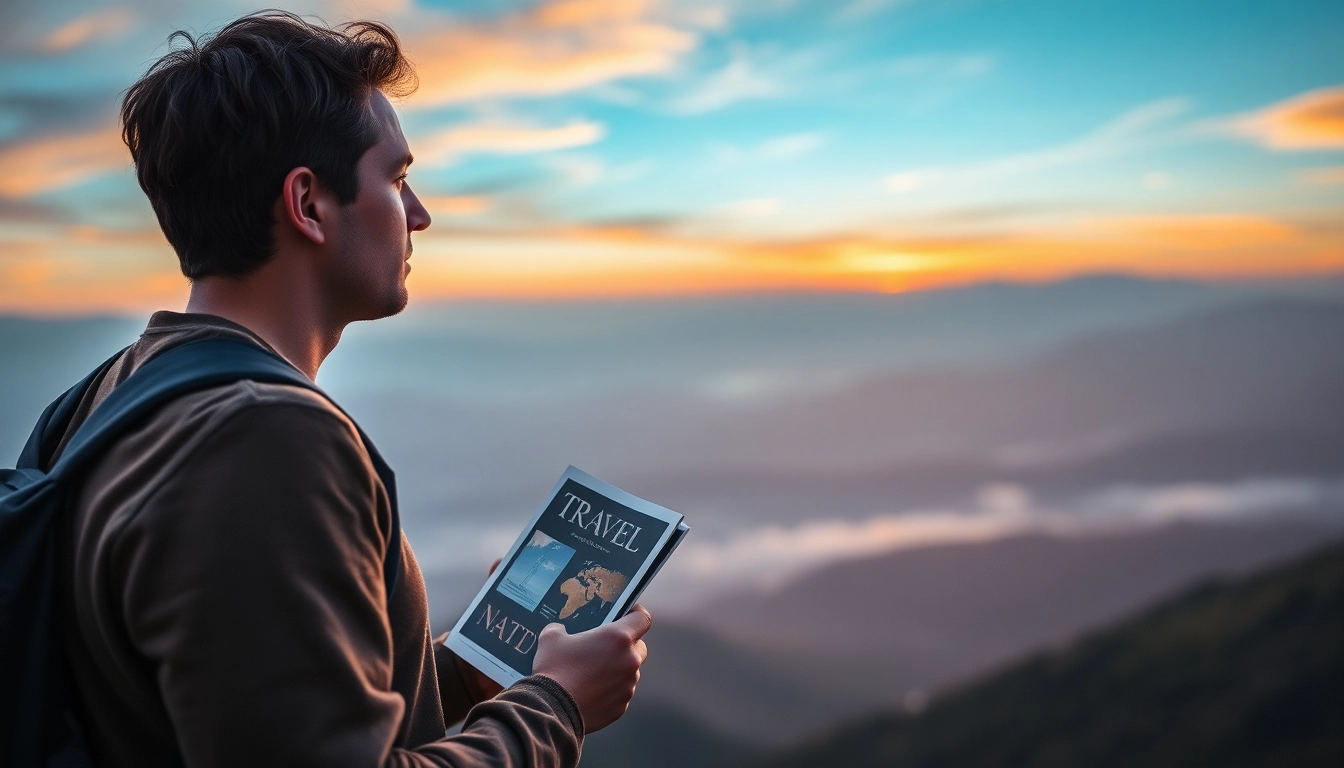Understanding Travel Anxiety and Its Impact
Travel anxiety, a condition that tends to manifest when individuals are faced with the prospect of traveling, is becoming increasingly recognized in our fast-paced and interconnected world. It involves feelings of apprehension, dread, or unhappiness associated with the journey itself or the unpredictability of travel. This can include everything from the stress of packing and planning to fear of flying, navigating unfamiliar surroundings, or worry about potential setbacks along the way. For many, travel is a source of joy and relaxation, yet for others, the mere thought of embarking on a trip can spark intense travel anxiety that could prevent them from enjoying their experiences fully.
What is Travel Anxiety?
Travel anxiety is essentially a form of stress or anxiety specifically linked to the act of traveling. It may manifest before, during, or after the travel experience and can be caused by a wide variety of factors, such as the fear of flying, being away from home, or uncertainty about one’s destination. Beyond mere apprehension, travel anxiety can lead to physical symptoms such as a racing heart, sweating, nausea, or panic attacks. For individuals with previous negative travel experiences, these fears can be particularly pronounced and impactful, significantly affecting their willingness or ability to travel.
Common Symptoms and Triggers
Individuals experiencing travel anxiety may encounter a range of symptoms. Common signs include:
- Physical symptoms: trembling, sweating, dizziness, or gastrointestinal distress.
- Cognitive symptoms: racing thoughts, a sense of impending doom, or trouble concentrating.
- Behavioral symptoms: avoidance of travel plans or canceling trips.
Some notable triggers include:
- Fear of flying or being in confined spaces.
- Concerns over security or safety at the destination.
- Logistical issues—concerns about missed flights, lost luggage, or language barriers.
The Psychological Effects of Traveling
Traveling, while perceived as an adventurous escape for many, carries profound psychological implications. The interplay between anxiety and travel can exacerbate feelings of stress, leading to a cycle where travel becomes viewed as an overwhelming endeavor rather than an enjoyable experience. Furthermore, travel anxiety can encompass more than just the immediate fears associated with travel—its impacts often reach into broader aspects of a person’s life, affecting their overall mental health and emotional well-being.
Preparing for Travel: Reducing Anxiety Before You Go
Effective preparation can substantially alleviate travel anxiety. By taking proactive steps to plan your journey, you can instill a sense of control and preparedness, significantly easing pre-travel jitters.
Planning Your Itinerary Mindfully
Creating a flexible and well-structured travel itinerary is a cornerstone of reducing anxiety. Identify the critical elements such as accommodation, transportation, and activities while allowing room for spontaneity. Balancing essential elements with opportunities to explore can help create a stress-free traveling environment. Aim to lay out your itinerary in manageable segments, ensuring that there are breaks in between activities to avoid the sensation of being rushed or overwhelmed.
Tools and Apps to Help with Travel Anxiety
With the rise of technology, various applications can assist in alleviating travel anxiety. Here are some popular options:
- Travel Planning Apps: Apps like TripIt or Google Trips allow you to organize travel details in one place, providing a sense of agency over your itinerary.
- Mindfulness Apps: Apps such as Headspace or Calm offer guided meditations and breathing exercises designed to ease anxiety and promote relaxation.
- Language Translation Apps: Using apps like Google Translate can help ease communication anxiety when traveling to places where you may not speak the language.
Packing Strategies to Minimize Stress
Packing is often a significant source of pre-travel anxiety. To avoid last-minute stress, consider these strategies:
- Begin packing well in advance of your departure date to avoid a frantic rush.
- Create a prioritized packing list that includes essentials and allows for contingencies.
- Minimize the amount of luggage by focusing on versatile clothing items that can be mixed and matched.
- Pack a small anxiety management toolkit consisting of items like essential oils, stress balls, or comforting snacks.
Techniques During Travel to Manage Anxiety
Even with thorough preparation, anxiety can creep up during travel. Implementing effective techniques while on the go can assist in managing symptoms.
Breathing and Relaxation Exercises
Breathing exercises are pivotal for managing anxiety, helping you regain a sense of calm. Techniques include:
- 5-4-3-2-1 Grounding Exercise: Identify 5 things you can see, 4 you can touch, 3 you can hear, 2 you can smell, and 1 you can taste to redirect focus.
- Deep Breathing: Inhale deeply for a count of 4, hold for a count of 4, and exhale for a count of 4. Repeat this cycle until you feel calmer.
Creating a Stress-Free Environment
Your environment plays a crucial role in how anxiety manifests during travel. Consider ways to enhance your surroundings:
- Choose seats that improve comfort, whether opting for aisle seats to stretch your legs or window seats for a scenic distraction.
- Bring along personal items like a favorite book, comfort clothing, or headphones to create a familiar atmosphere.
- Limit exposure to negative news or overwhelming social media during your travels to maintain a positive mindset.
Communication and Seeking Support
Don’t underestimate the power of communication. Share your feelings of anxiety with travel companions or reach out for professional support if necessary. Whether you’re traveling with friends, family, or on your own, having a support system can make all the difference.
Post-Travel: Decompressing After Your Journey
After a trip, it’s crucial to take time to decompress and mentally process your experiences. This not only assists in recovery from anxiety but also enhances future travel experiences.
Reflecting on Your Travel Experience
Take the time to reflect on your time away—what went well, what challenges arose, and how you coped. Journaling or discussing your trip with a trusted friend can help you articulate your thoughts and gain valuable insights that can be useful for future travels.
Journaling as a Tool for Mental Health
Journaling serves as an excellent mental health tool for processing anxiety encountered during travel. Writing down your thoughts can help clarify feelings and reduce negative emotions. Consider prompts like:
- What was the most enjoyable moment of the trip?
- What strategies were most effective in managing anxiety?
- What would you do differently on your next journey?
Maintaining Mindfulness After Your Trip
Maintaining mindfulness after your trip can help bridge your travel experience with daily life. Practicing relaxation techniques, continuing to use planning tools, and engaging in reflective practices allow you to carry the lessons learned from your travels into your everyday routine.
Seeking Professional Help: When Travel Anxiety Becomes Overwhelming
In some cases, travel anxiety can escalate to a level where it becomes detrimental to your quality of life. Recognizing when to seek professional help is essential.
When to Consider Therapy for Travel Anxiety
If your travel anxiety significantly impacts your ability to travel or negatively affects your quality of life, it may be time to consider therapy. Cognitive-behavioral therapy (CBT) is a common approach that focuses on changing negative thinking patterns and behaviors associated with anxiety. A trained therapist can provide coping strategies and support tailored specifically to your experiences.
Recommended Resources and Support Groups
There are numerous resources available for individuals struggling with travel anxiety. Consider joining support groups or forums both online and in-person. Platforms like Reddit or community mental health organizations can provide a sense of camaraderie, allowing you to hear shared experiences and glean insight from others who understand your struggles.
Medication Options for Severe Cases
For some, medication may be an option worth exploring if anxiety persists despite therapy and self-management strategies. Speaking with a healthcare provider can help determine if medications such as anti-anxiety medications or antidepressants are appropriate for your situation.
Travel anxiety is a complex condition that can layer multiple emotional and psychological challenges onto one of the most enriching experiences of life—traveling. By taking proactive steps in preparation, utilizing coping strategies during travel, and reflecting afterward, individuals can slowly but surely pave their way toward a more fulfilling travel experience.



